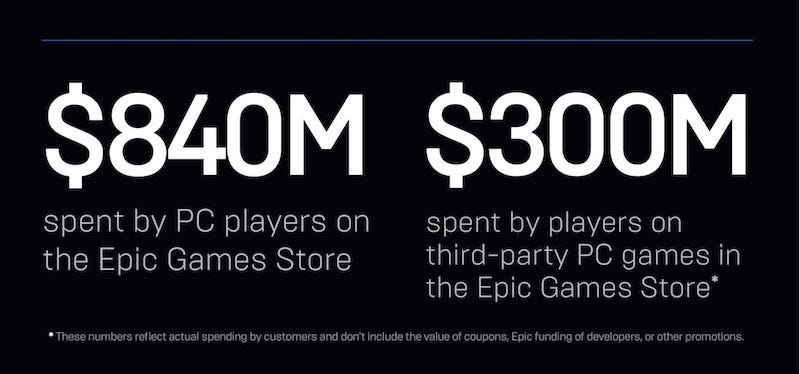What traits do 'discoverable' games have in 2022?
Publikováno: 31.1.2022
Let's not look at genres, eh?
[The GameDiscoverCo game discovery newsletter is written by ‘how people find your game’ expert & company founder Simon Carless, and is a regular look at how people discover and buy video games in the 2020s.]
Happy Monday(s), and welcome to GameDiscoverCo’s humble newsletter, where we’re all currently very excited about our new NFTs, and think you should be too. (*checks our stock ticker feverishly, before remembering a) we’re not publicly traded b) we didn’t make any*)
OK, sorry, sorry, we’re trying to remove it. In the meantime, we’re tackling a whole bunch of interesting discoverability news & opinions. We’ll be starting with a more abstract look at the kinds of games that might do well in these tumultuous times.
[Do you dig the info you’re getting in our free newsletter, and want to thank us and get ‘cool stuff’ too? Our GameDiscoverCo Plus subscription has an exclusive game analysis newsletter, real-world data on Steam/console sales, two eBooks, a member-only Discord & more, woot.]
What traits do the most discoverable games have?
When working with one of our clients recently, we were looking into an important specific. The existential question: what makes for a successful and long-lasting game in today’s market, both from a discovery and play point of view?
You can examine this purely in terms of game genres or Steam tags. And that’s also a valid approach we’ll reference at the end of this section. But there’s another way to do this - by looking at broad feature sets.
Advantages of this approach? We’re looking at broad traits, not types of game. But disadvantages? This may be a very high-level view, and not that practical when transferring to reality.
Nonetheless: some of the things that we think are important to a game’s success right now are, if you’re looking to grab the idol (of broad discovery!) without unleashing the boulder (of poor reach?):
Online co-op: if the game is appropriate for multiplayer online co-operative play, this really helps with both streamers and word of mouth, in this meta-COVID world filled with ‘vs. mode’ griefers.
User-generated content or creations: it can be as simple as a cool-looking zoo in Let’s Build A Zoo or as complex as completely custom vehicles in Trailmakers, but modding and UGC extends the discussion a lot.
Layered new features over time: the concept that you can launch a game when not yet finished, but have a clear roadmap to adding things. These would be features that both new and old buyers would be excited about.
Sandbox elements: if you give the player a canvas and allow them to be fairly freeform with what they do with it, all kids of interesting things happen. It allows both for a) varying play styles and b) more creativeness over time.
RP (roleplay) or ability for players to tell stories: this largely helps in multiplayer titles and with streamers. But if you allow people to act out or be themselves in interesting, unique ways they can communicate to others - that’s great.
Replayability: can you play the game again and again in different ways? Whether that’s through procedural generation, multiple modes, or something else, that massively helps the ability for your game to get surfaced multiple times.
Perhaps some of these points are a little basic. But it’s a good alternative lens to discuss some of the things that draw players to games & experiences nowadays. And it underscores that a looser approach to ‘traditional gameplay’ can pay dividends.
In other words, if your game is a one-time single player-only masterpiece on its launch day based on tightly plotted gameplay, it can absolutely get somewhere - think Outer Wilds, Chicory, and more. We know that’s the most conventional approach.
But giving your players and potential players something new to talk about 6 months, a year, or even 3 years after launch, or different avenues to explore over time? That’s worth its weight in game discovery gold, folks - especially in a changing world.
[We still think looking at Steam tag importance by Hype or revenue can also help you pick what type of game might do well. And actually, we’re rolling out Steam tag rankings for all unreleased games to Plus subscribers later this week! More on this yummy data soon…]
Epic Games Store in 2021: some real data.
You’ve got to admire the folks at Epic for continuing to be very transparent with their Epic Games Store sales numbers, even after the Apple/Epic lawsuit caused them to be, uhh, even more transparent than they would have liked, thanks to all the documents exposed during discovery.
Epic’s 2021 round-up of Epic Games Store performance reveals: “There are now over 194 million Epic Games Store PC users, an increase of 34M from 2020. Daily active users peaked at 31.1M, and peak concurrent users reached 13.2M. December’s monthly active users peak reached 62M users, an increase of 11% from last year’s peak of 56M.”
Sounds good, huh? Niko’s Daniel Ahmad grabbed the exact year on year numbers to make things clearer, and there’s two notable ones: EGS had $840 million total spend in 2021, vs. $700 million in 2020. But third party spend was $300 million in 2021, only up somewhat (13%) from $265 million in 2020.
So that means first-party games made $540m in 2021 on EGS vs. $435m in 2020, a much stronger 24% increase. It’s likely that Fortnite and Rocket League are responsible for most of that increase - especially since the also Epic-owned Fall Guys hasn’t officially made it to EGS yet.
How is Epic doing vs. the non-Steam competition? If you compare this figure to other third-party stores, looks like GOG.com grossed around $10 million for a recent quarter. So even with GOG revenues multiplied up to a full year, Epic is clearly way ahead of other PC stores (those not linked to Steam keys.)
Also wanted to highlight EGS store feature additions in 2022, including: game-agnostic voice features on platform; ratings & polls; game hubs; expanding Epic Wallet geographically; library & download management improvements. And for devs, the full self-publishing tools roll out and “PC Store Cross Play courtesy of Epic Online Services.”
Our general comment on Epic Games Store - and we look at EGS’s top-grossing games often - is that AAA-styled GaaS and IAP-enhanced games with good graphics are doing well enough. If EGS happens to be your entry point to e.g. playing GTA Online, you’ll keep playing and spending on the game there. (And select premium titles do decently, especially if they’re exclusive like Kena: Bridge Of Spirits.)
But EGS’ overall revenue is still top-heavy compared to Steam, and the amount of browsing and buying of ‘average games’ is very low. Nonetheless, feedback we’ve heard from devs is that the ‘$10 coupon’ sales that Epic runs from time to time are strong revenue drivers, and potentially worth being on EGS for.
(It’d actually be great to see how much of the ‘average indie game’ revenue is tied to the $10 coupons. That $300 million doesn’t include coupons, but does include ‘the rest of the revenue tied to a purchase with a coupon’, if you see what I mean. C’mon, extra leaks, show me magic?)
The game discovery news round-up..
Just as we started writing this section, the Sony x Bungie news hit, so, uhh, that’s a big one. We may devote a section to it in Wednesday’s newsletter. But you know the drill - consolidation, rise of subscription services, etc. (With a large side order of ‘Sony’s not very good at GaaS yet, and Bungie is’.) Anyway, onto news:
A new Steam Deck tidbit? Steam is switching from heuristic Steam Deck game testing (based on “playtime and interest from Deck reservation holders”) to a new process: “enabling a manual submit-for-review button for titles that you want to prioritize independent of our heuristics.” But please note: “Because testing bandwidth is limited and we want to guarantee quick turnaround for review requests, we're initially granting access only to a small set of partners.” So plz wait to be asked!
The latest Apple financials were very good - services as a whole up to $19.5 billion for the quarter, up 24% YoY. But given Tim Cook being vague about even Apple TV+’s spend or reach - “We don’t make purely financial decisions about the content… We try to find great content that has a reason for being” - it’s clear we won’t be getting much direct info about Apple Arcade’s sub numbers.
A very transparent 2021 year in review from Thomas Altenburger, co-founder of Flying Oak Games (Scourgebringer) and a previous GameDiscoverCo newsletter featuree. Particularly notable: “Publishers… are aligning toward the fact that publishing games under [a] 500k€ production budget will be a no go from now on (unless your project is unquestionably unique and easy to market)… There are too many games for marketing to be efficient under that production value, and it makes more sense for them to aim higher segments where the better returns are.”
Microlinks: consumer game events that rely on lots of exhibitors are having a rough time, as seen by EGX Birmingham in the UK being canceled recently; didn’t know that RoadToVR does a handy detailed Quest VR game chart rundown monthly?; for those who want to improve motor-specific accessibility of their game, Special Effect has a new toolkit to help.
Want to work out vaguely how a mid-level Game Pass roll-out goes in terms of unique players? Well, co-op AI-festooned FPS The Anacrusis (pictured) just announced that it had 200,000 players in its first two weeks, and we’re pretty sure that only 10-20k of those were separate of Game Pass, if you look at Steam results. So there’s your ballpark!
Lots of ‘friends’ came along to help appeal the Epic vs. Apple ruling, including 35 U.S. States, Microsoft, and even the Biden Administration. Must feel good for Epic! Microsoft in particular comes out swinging: “This case addresses the extent to which Apple Inc…. the dominant provider of U.S. smartphones and mobile operating systems, will be permitted to leverage its power in those markets to foreclose competition in other, adjacent markets.” So we’ll see if any higher courts bite.
Look, here’s Roblox data for 2021 direct from the company, including its top ‘experiences’ and a whole bunch of fascinating info on what type of ‘games’ are doing well. The company notes: “In 2021, we saw a surge in anime and horror experiences”, and lists its top genres as role-playing, action, platformer/obby, and tycoon. Top 3 games were Brookhaven, Tower Of Hell and Adopt Me!.
Lots of good physical (& limited digital!) European hardware & game info in GSD’s round-up of 2021 sales, one particularly notable: “Overall, games released in 2021 only accounted for 29% of all games sold across Europe last year. This matches 2020, although during that year legacy games sold particularly well due to a surge in sales during the first COVID-19 lockdowns.” Old titles rule, new titles drool?
Microlinks, Pt.2: why your first 10 Steam reviews are the most important, algorithm-wise; F2P publisher Tilting Point is making its own game launcher to get mobile titles across to web, PC & Mac; how the ID@Xbox program has changed over the past 8 years.
And that’s it for now! We’ll back back on Wednesday, most likely with a look at the top new Nintendo Switch titles of the past few months, and how they got there.
[We’re GameDiscoverCo, a new agency based around one simple issue: how do players find, buy and enjoy your premium PC or console game? We run the newsletter you’re reading, and provide consulting services for publishers, funds, and other smart game industry folks.]


